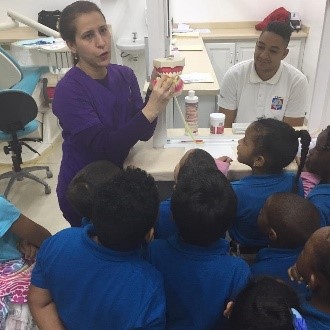Transformational Perspectives
 TeachBeyond is registered in fifteen nations around the world. We serve in nearly fifty countries, and partner with over sixty other ministries. Our members represent a number of different nationalities, languages, and cultures. And while we all share the vision of providing education as an effective catalyst to bring hope to individuals and positive transformation to societies, this can look differently in our different contexts. No one nation or culture holds the definitive answer on how to cultivate a biblical worldview.
TeachBeyond is registered in fifteen nations around the world. We serve in nearly fifty countries, and partner with over sixty other ministries. Our members represent a number of different nationalities, languages, and cultures. And while we all share the vision of providing education as an effective catalyst to bring hope to individuals and positive transformation to societies, this can look differently in our different contexts. No one nation or culture holds the definitive answer on how to cultivate a biblical worldview.
In Ephesians 4, Paul reminds the church that “there is one body and one Spirit—just as you were called to the one hope that belongs to your call…But grace was given to each one of us according to the measure of Christ’s gift.” He goes on to point out that while we are given different callings (apostles, prophets, evangelists, shepherds and teachers) these are giving for a common purpose “to equip the saints for the work of ministry, for building up the body of Christ…[that] when each part is working properly, makes the body grow so that it builds itself up in love.”[1]
Paul reminds us that as members of the family of God, we are part of a unified whole. In our diversity, we see and understand different elements of God’s multi-faceted nature. We can learn from each other and grow together towards the common purpose of seeing God’s name glorified and His kingdom come on earth as it is in heaven.
To that end, this year we’ve been intentional in asking TeachBeyond members from multiple passport and service countries to share their perspective on what it means to bring the gospel through transformational education. We’re calling this series Transformational Perspectives. Each author has been asked the following questions:
- As you consider what it means to deliver transformational education, underpinned by a distinctly biblical worldview, what principles and themes stick out to you? How do these inform your professional practice?
- What are the essential elements that make up a biblical worldview and how do these show up in the classroom?
- What practical advice would you share with other teachers who want their lessons to reflect an integrated understanding of God’s word and world?
Our hope is that as we as the larger TeachBeyond community are exposed to and challenged by these different perspectives, that we will all grow in our own understanding and practice of biblically inspired, Holy Spirit empowered transformational education.
If you have a perspective that you would like to share, please don’t hesitate to contact us at onpractice@teachbeyond.org.
Becky Hunsberger
Coordinator of Teacher Education Services
TeachBeyond
[1] See Ephesians 4:1-16
Photo courtesy of HOPAC, Tanzania.








